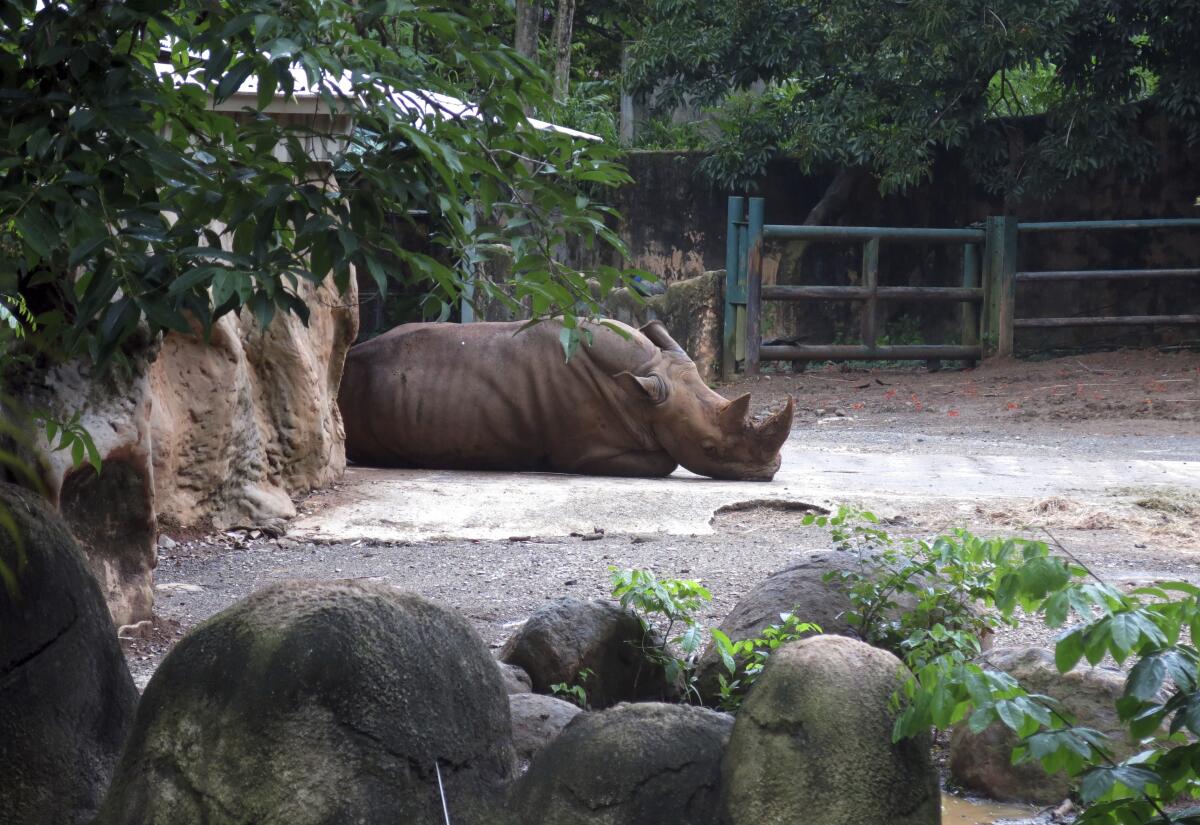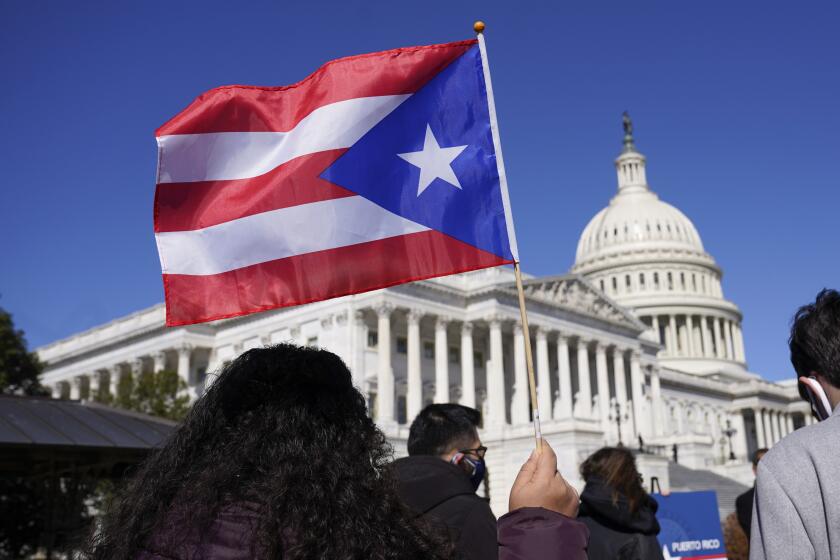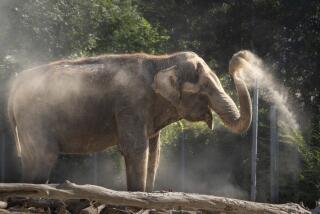Officials to drop Puerto Rico zoo investigation, transfer animals

- Share via
SAN JUAN, Puerto Rico — Federal authorities said Wednesday that they are dropping all investigations into Puerto Rico’s lone zoo, where various species have died, after reaching an agreement with the local government to transfer the animals to sanctuaries in the U.S. mainland.
The announcement angered many activists who have long fought to have the U.S. territory’s government held responsible for the deaths and ill health of animals reported for more than a decade at the Dr. Juan A. Rivero Zoo in the western town of Mayaguez.
“We cannot change what happened in the past,” U.S. Attorney Stephen Muldrow said. “Animals died.”
However, he stressed that going to court would only delay the transfer of the zoo’s remaining animals, which number some 300 and range from a tarantula to a lone elephant.
“The well-being of the animals is the number one priority,” Muldrow said at a press conference.
Puerto Rico’s government is closing the U.S. territory’s only zoo following years of suspected negligence, a lack of resources and deaths of animals.
He added that violations at the zoo spanned “many years,” with “different administrations not being able to guarantee the well-being of animals.”
He said it was an institutional problem as well as a lack of resources: “There was no intentional damage to the animals.”
But activists say ending the federal investigations means impunity prevailed and that no justice will be served for the animals that died or fell ill.
“We were demanding that the federal government do its job: investigate violations,” said Christian Ríos, an attorney and president of an animal rights commission at Puerto Rico’s Assn. of Attorneys. “This leaves a bad taste in our mouths.”
In the past decade, a government-appointed committee noted two pumas died and raised concerns about an underweight chimpanzee, a rhinoceros named Felipe that was limping and a lack of shelter for animals including a kangaroo and a porcupine.
The U.S. House has passed a bill that would allow Puerto Rico to hold the first-ever binding referendum on whether to become a state or gain some sort of independence. The bill is almost certain to die in the Senate.
In January, an American black bear named Nina who had stopped eating died from a heart attack at more than 20 years old. Black bears can live up to 35 years in captivity.
Meanwhile, officials last week had to euthanize a puma that was diagnosed with cancer, Muldrow said.
He said nearly all the animals will be transferred within the next six months, noting that two eagles were already removed because the zoo was not licensed to care for them, and that two owls and two anacondas also have been transferred elsewhere within the island.
Earlier this month, Pat Craig, executive director of the Wildlife Animal Sanctuary in Colorado and Texas, told the Associated Press that the organization would take in up to 50% of the zoo’s animals.
However, it’s still unknown where certain animals, including the lone elephant named “Mundi,” would end up. Muldrow said officials are trying to find an elephant sanctuary since they’re a social species and should be kept in groups.
The zoo, which opened in 1954, has remained closed since hurricanes Irma and Maria battered Puerto Rico in September 2017.
More to Read
Sign up for Essential California
The most important California stories and recommendations in your inbox every morning.
You may occasionally receive promotional content from the Los Angeles Times.











